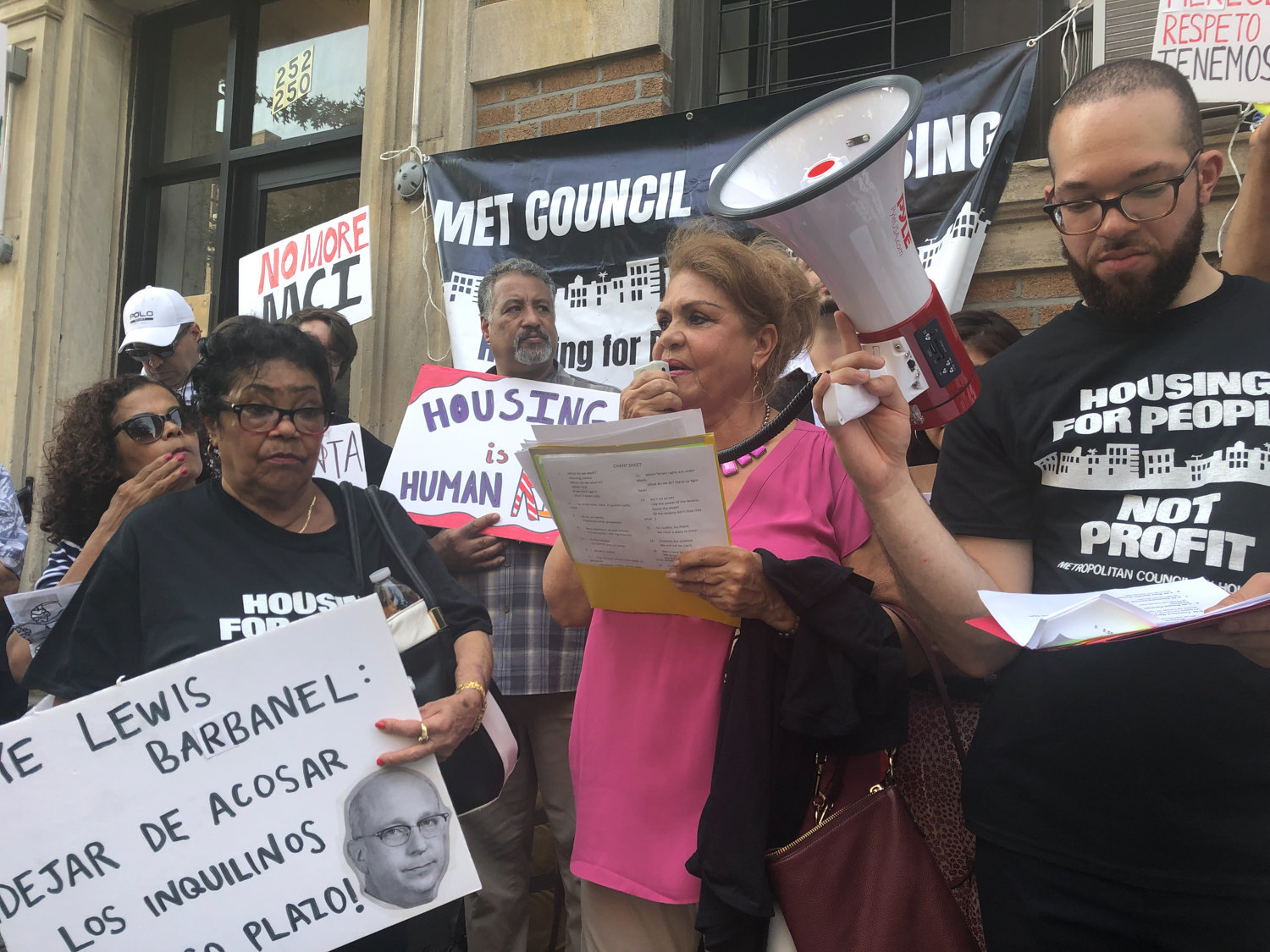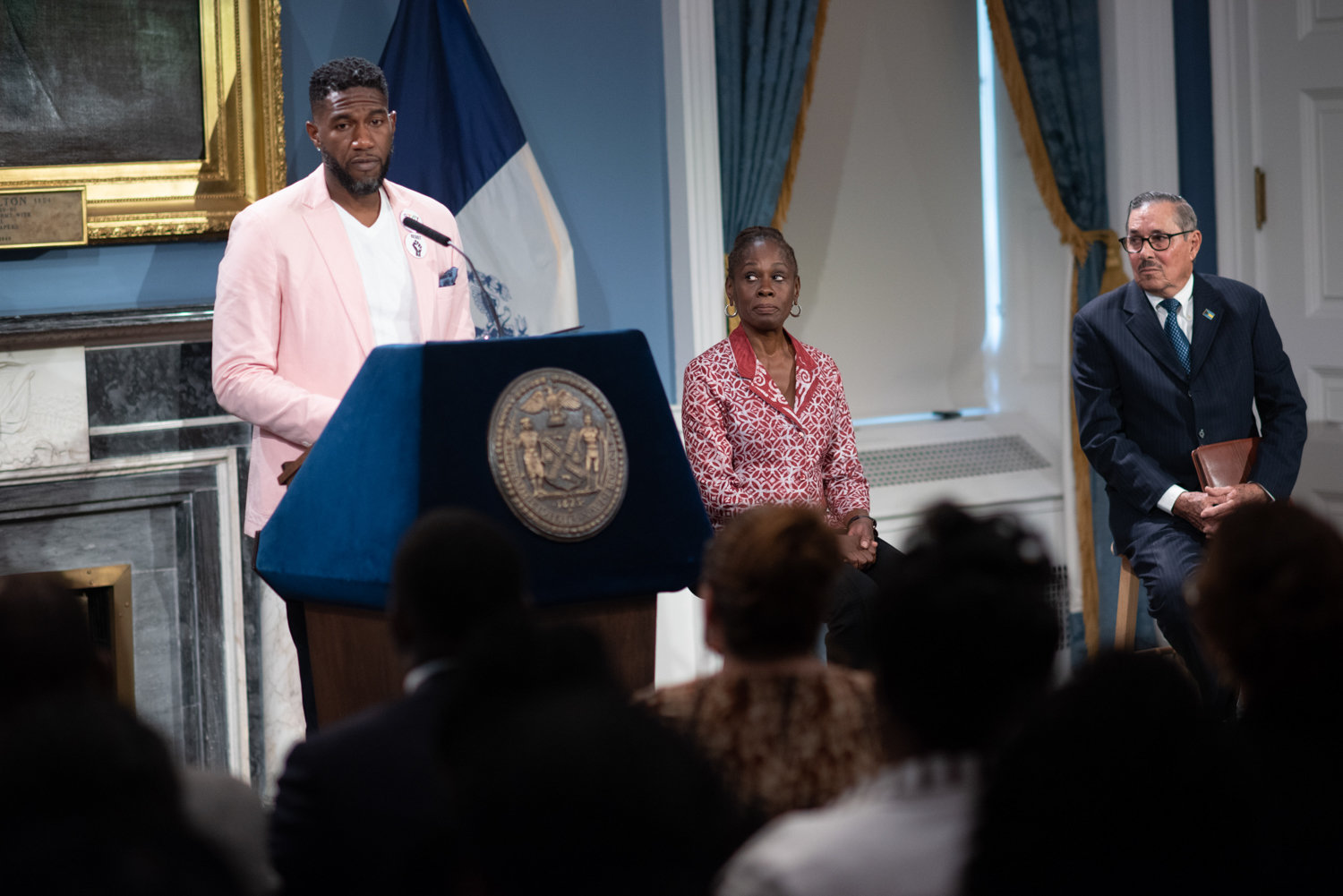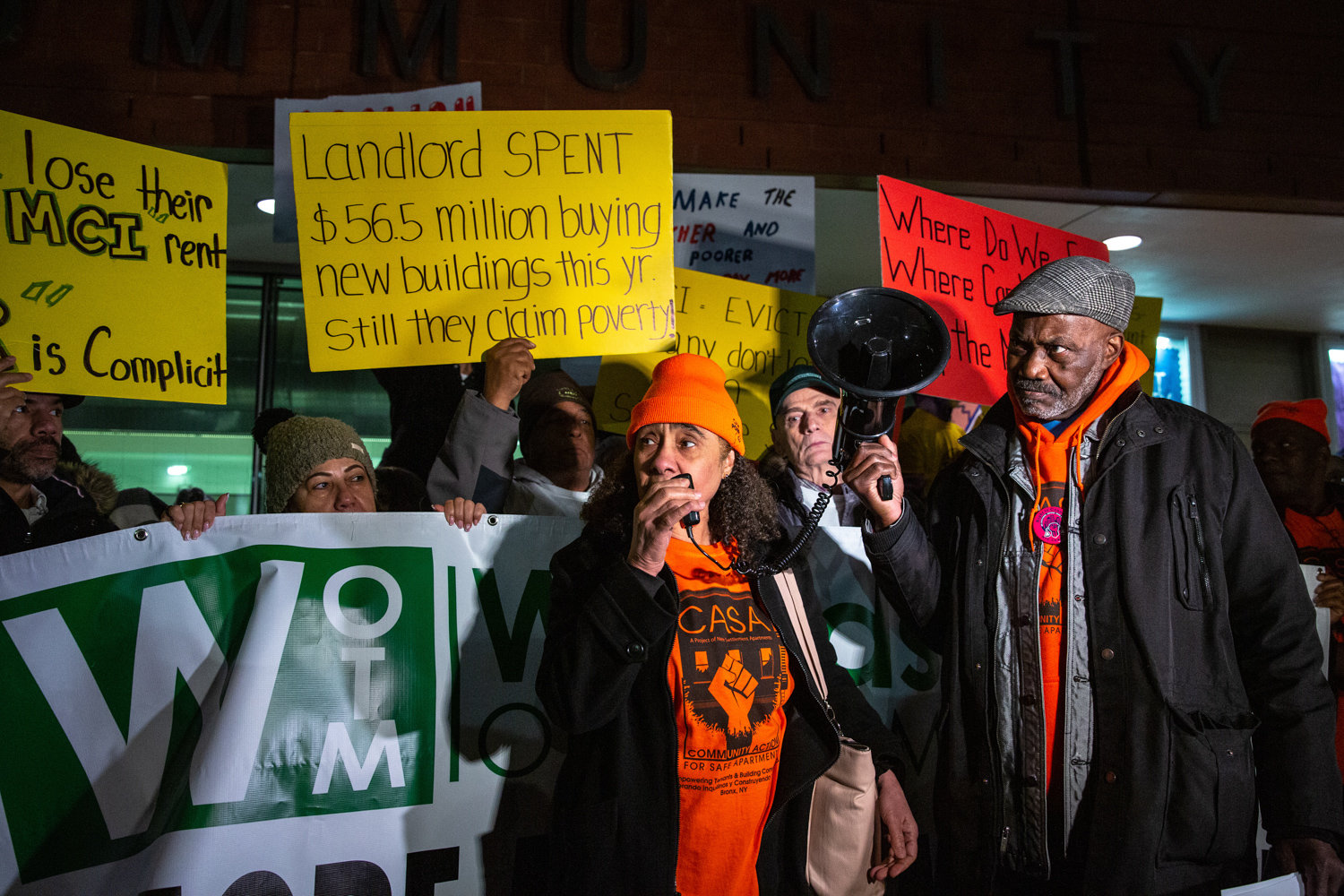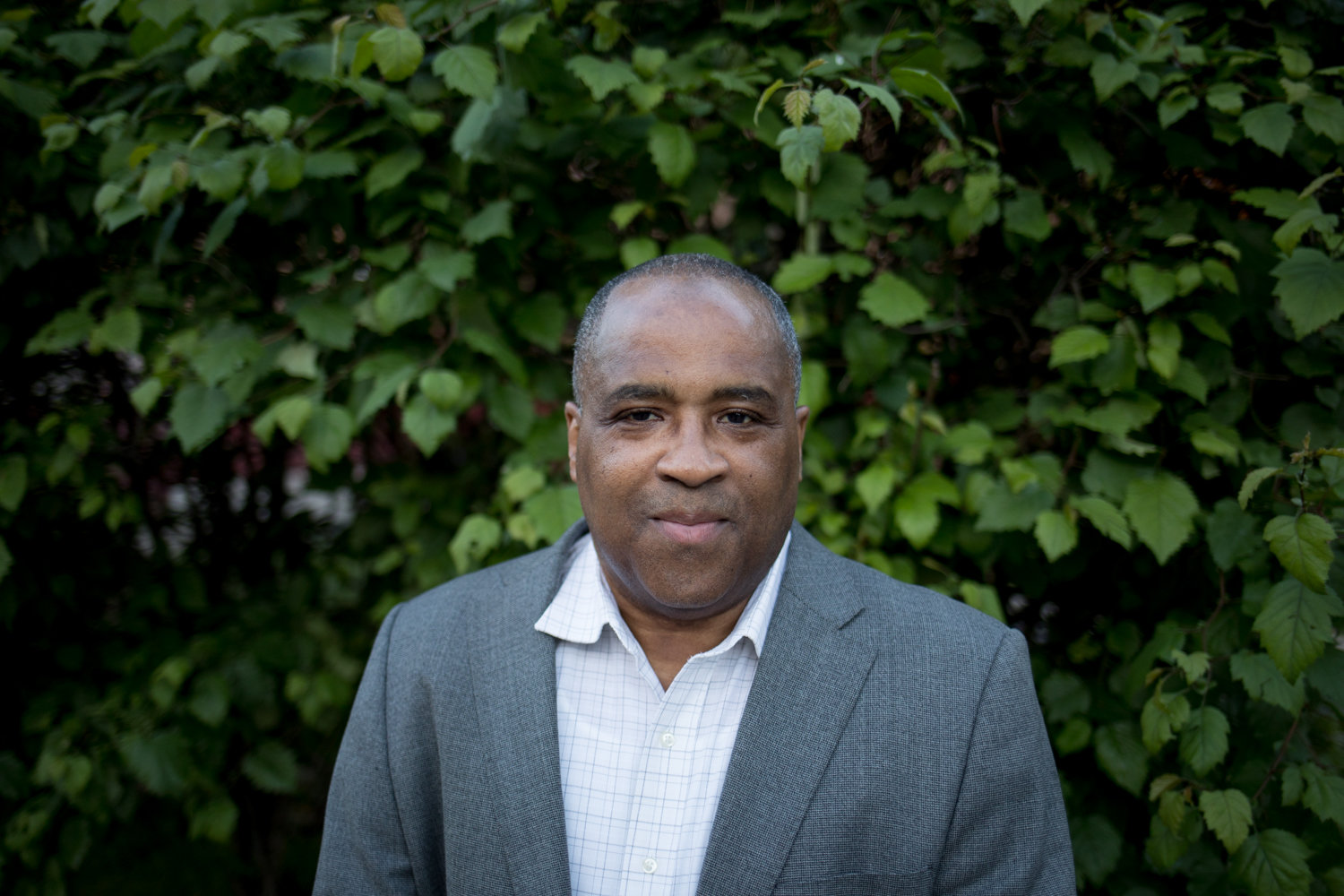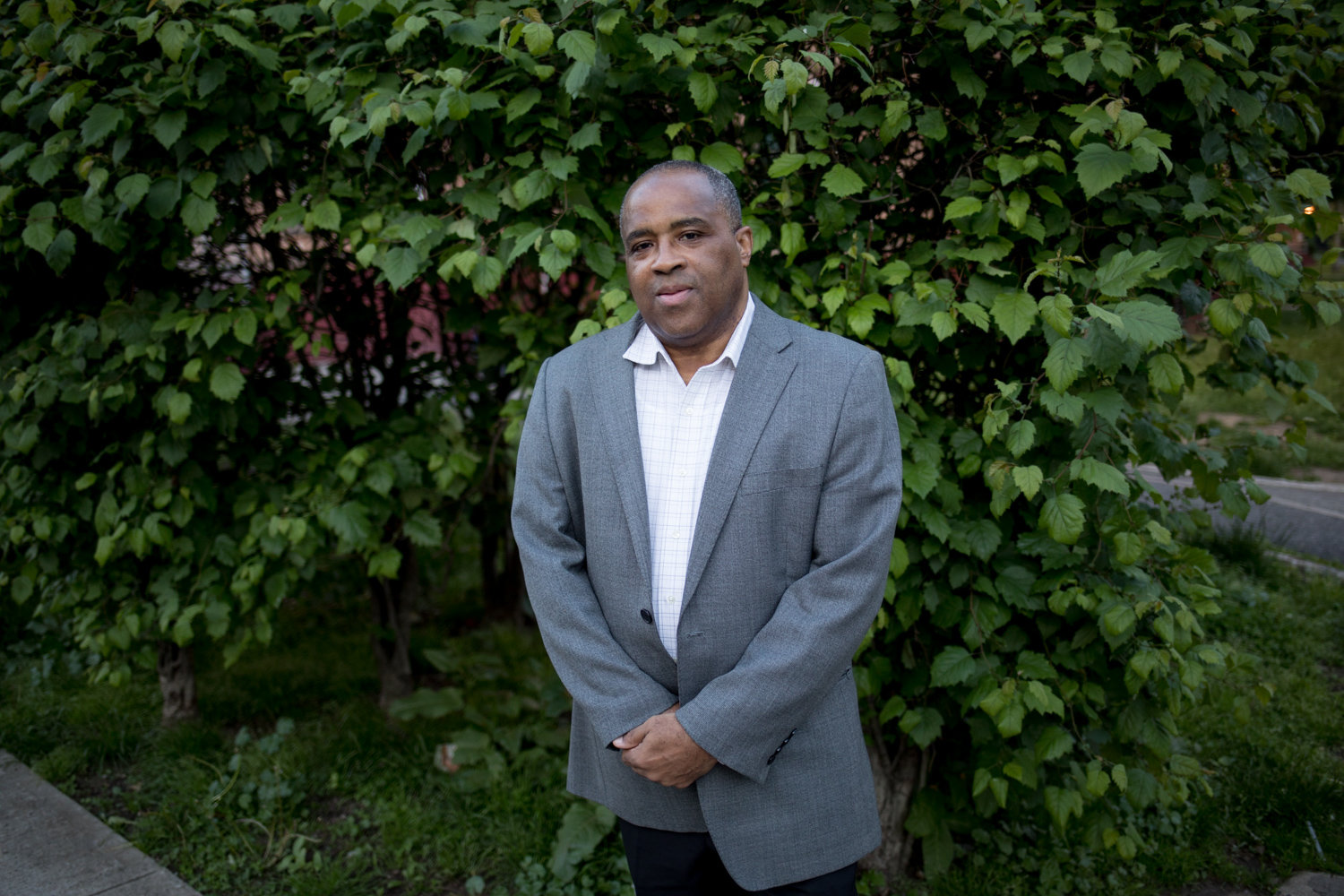Tenants learn how to battle bad landlords
Making the list is important for a new nightclub, or getting that elusive reservation in the city’s hottest restaurant. But one list no one should be clamoring for is the public advocate’s annual “Worst Landlord List,” designed to publicize and shame the worst apartment building owners in the city.
Shame is one thing — but what about the people who have to live in the complexes highlighted in the report, like 99 Marble Hill Ave.? Just north of the Broadway Bridge, this 55-unit building has more than 440 open violations from the city, and tenants have been pitted against landlord Richard Nussbaum for quite some time.
And then there’s NYCHA. The New York City Housing Authority and its more than 300 public housing complexes across the city are far from forgotten by Jumaane Williams. In fact, NYCHA — which has wracked up some 300,000 open work orders in need of solutions — has earned its own separate category on the public advocate’s list.
Whether ownership is a private entity or the city, residents finding their homes on lists like this do have options. In fact, they don’t even have to wait for Williams to notice them, there are things tenants can do to keep a landlord in line so they don’t ever have to wait until problems are overwhelming.
“Reporting violations, that’s the first step,” said Ava Farkas, executive director of the Met Council on Housing, a tenant advocacy group. “Establishing violations is like getting a record that the problems you’re experiencing are being affirmed by the city.”
Issues left unresolved by their landlord could be reported to 311. More serious issues can go directly to the city’s housing preservation and development department.
Tony Edwards, president of the Marble Hill Tenants Association at NYCHA’s Marble Hill Houses, said his neighbors there often don’t make complaints to the city. Instead, they come right to him.
“They look at me, they think I’m the one who comes with the wrench and the bolts,” Edwards said. “They’re dealing with (the apartment), but they have to do their part as well.”
But reporting violations is still only the first step.
“That, in and of itself, does not compel the landlord to correct the violations,” Farkas said. “Tenants then have to take the next step, and have to take further actions.”
That already happened at 99 Marble Hill. Tenants took Nussbaum to housing court, and at least once have refused to pay rent en masse.
That’s a valid tactic, Farkas said, and one that’s likely to get the landlord’s attention.
“It is legal and it is the right of every tenant to withhold or do a rent strike,” she said. “The landlord will bring you to housing court for failing to pay your rent, the judge will make a ruling about when the rent has to be paid and what the landlord has to do to fix the problems in the building.”
But there is risk in taking that route, Farkas said. When a landlord takes a tenant to court, a record is collected of that tenant, and agencies sell that information to other landlords. When it comes time for that tenant to look for another apartment, they may find themselves on what Farkas called a “tenant blacklist.”
There are alternatives to withholding rent, Farkas said. If a tenant enjoyed services when they moved in that are no longer available, they can apply for a rent reduction with the state’s Division of Homes and Community Renewal. Filing a lawsuit against the landlord and taking them to housing court is often another relatively low-risk way to change circumstances — especially if tenants band together.
“We really stress that it’s much more effective for tenants to work as a group,” Farkas said. “Just meet as a group, make collective decisions about which of these actions to take, and in what order.”
HPD has already placed 99 Marble Hill in its alternative enforcement program.. Each year, HPD adds buildings with a large number of open violations to the list, giving landlords just four months to make adequate repairs.
While they’re in the program, HPD dispatches tenant liaisons to keep abreast of issues in the building, and can send out their own inspectors to ensure repairs are being made. If landlords don’t make adequate changes, the department will take over and fix them, according to a spokesman.
If being enrolled in the alternative enforcement program isn’t enough, the landlord can be taken to court. Nussbaum is due for his date in front of a judge later this month, the spokesman added.
The public advocate’s list of worst landlords is something Farkas appreciates, but she also recognizes Williams doesn’t have much power to change things.
“They have the power of the bully pulpit, the power to get media attention and shame landlords,” Farkas said. “The burden is placed on an individual who has less power overall in our system. Our emphasis is on helping tenants understand that they could feel very alone in this, but so many people are going through the same thing.
“Work together, and organize and build some collective power.”
CORRECTION: Tony Edwards is president of the Marble Hill Tenants Association at NYCHA’s Marble Hill Houses. A story in the Jan. 16 edition gave him an outdated title.

